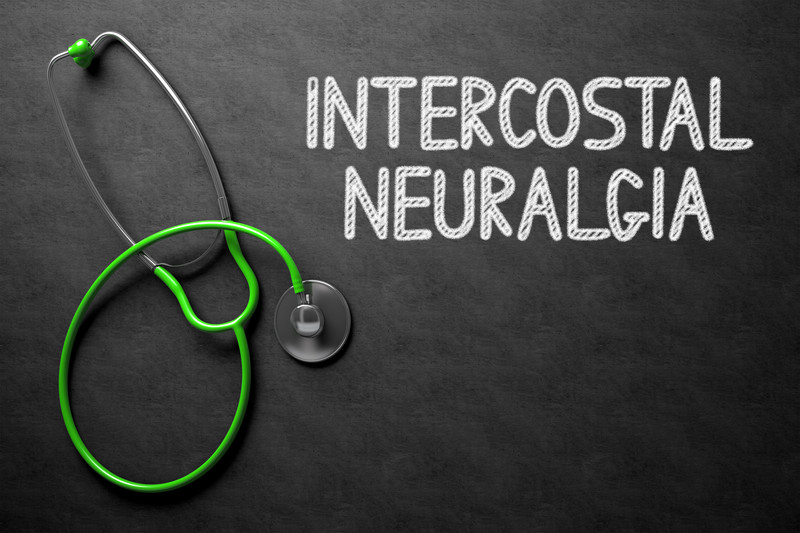22 Nov What Causes Intercostal Neuralgia?
Intercostal neuralgia is a type of neuropathic pain that occurs as a result of damage or dysfunction to one or more nerves of the central nervous system. The condition can be caused by a number of diseases.
 The sporadic episodes of acute pain experienced in intercostal neuralgia can present symptoms like a sharp, tearing, aching or gnawing pain that envelops the upper chest area. The same may also become more intense with sudden movements like coughing or laughing.
The sporadic episodes of acute pain experienced in intercostal neuralgia can present symptoms like a sharp, tearing, aching or gnawing pain that envelops the upper chest area. The same may also become more intense with sudden movements like coughing or laughing.
Causes and risk factors
Typical causes of intercostal neuralgia include:
- Nerve damage
- Nerve dysfunction
- Infection
- Direct trauma
- Inflammation
- Lung or chest diseases
- Injury during thoracic surgery
More specific causes may include:
- A blow to the chest
- Upper body twisting
- Forceful arm swinging
- Overstretching
Symptoms of intercostal neuralgia
While typical symptoms include pain around the chest area, additional signs can include the following:
- Pain in shoulder, arm or back
- Limited shoulder mobility
- Tenderness
- Swelling
- Numbness
- Tingling
- Shortness of breath
- Muscle tightness
- Abdominal discomfort
- Loss of appetite
- Fever
Diagnosis
Diagnosis of the condition is typically done by examining a detailed history of preceding events. Different types of tests may include:
- A pain questionnaire to be filled out providing details of pain
- Neurological examination to identify the cause of pain
- Blood work to rule out possibility of lung infection
- Electrocardiogram and echocardiogram to rule out angina
- Consultation with a pulmonologist
The physical examination component of the diagnosis is an important part where different movements are studied to verify a possible origin source. Some diagnostic examinations needed can include the following:
- Chest X-rays
- CT scan
- MRI scan
If the pain is experienced and the range of motion is affected by injury then the doctor may use a grading system to help address the level of severity.
- Grade One refers to mild strain
- Grade Two refers to more extensive damage
- Grade Three refers to complete rupture of muscles
Dealing with intercostal muscle pain
The condition is typically treated using conservative therapy. The most common among these include the following options:
- Anti-inflammatory medication is helpful in reducing pain and inflammation
- Ice application is beneficial for lowering the pain and swelling in the area
- Muscle relaxants may be used for regulating muscle pain and spasms
- Joint manipulation and mobilization is a way to restore normal function of the affected muscle groups
- Rest allows for speeding up the healing process and recovery.
Recovery times
The recovery from intercostal neuralgia will depend on the severity of the injury or damage. For instance, a grade one or grade two injury can take anywhere from two to seven weeks to heal completely.
A more severe, grade three injury where muscles ruptures have occurred can take up to two months or longer for a full recovery.
To speed up the healing process, it is recommended to not engage in any heavy lifting or strenuous exercise during recovery. Likewise, patients can also try soaking in a warm Epsom salt bath to find soothing relief from the associated pain of intercostal neuralgia.




Sorry, the comment form is closed at this time.